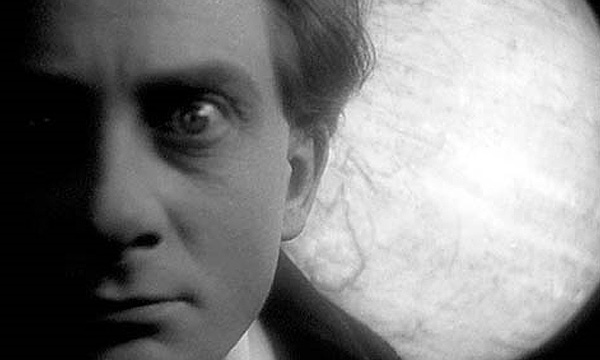
La chute de la maison Usher (The Fall of the House of Usher in English) has always been regarded as one of the milestones in the history of cinema.
It’s been said the film was based on the homonymous story by Edgar Allan Poe, but it was actually loosely inspired by two distinct stories by the American writer, one bearing the same title as the film and another entitled The Oval Portrait. The adaptation from the literary sources was cured by Luis Buñuel, also assistant director to Jean Epstein. Epstein’s and Buñuel’s views differed greatly: Epstein was for a more approximate interpretation of Poe’s material, while Buñuel’s intention was to follow more strictly the original. Ultimately Epstein won the battle and Buñuel decided to abandon the project.
In the film version of the story, Roderick Usher urges his friend Allan to join him. He lives in his mansion with the sick Madeleine, his wife (his sister in Poe’s original) and with Madeleine’s doctor. Usher is completing a painting of his beloved wife, but with every stroke he applies to the canvas, it seems Madeleine is getting weaker and weaker. Till the day comes that Medeleine dies, throwing her husband in utter despair. But is Madeleine really dead?
Epstein’s film is rightly considered as one of the masterpieces of the silent era. The Polish-born director chose to follow the original closely not from a sequentially narrative point of view, but in its spirit. La chute de la maison Usher is a profoundly hallucinatory trip through the darkness of human mind, perfectly expressed through the richness of the bold technical solutions – effects and camera movements pushed to their limits for the time -, the eerie sparseness of the set decor, the intense performance of the actors – Jean Debucourt as Roderick Usher in special way. Poe’s stories are reproduced in their phantasmagorical atmosphere rather than in their more superficial elements. The result is a triumph of convoluted visions, of oniric states impressed over film chasing one another, and a majestic and frightening representation of human lunacy.

No wonder an artist willing to put himself or herself to the test of scoring a film of some relevance should decide to elect Epstein’s masterpiece as an ideal starting point. Kristín Anna Valtýsdóttir, known also as Kría Brekkan, renown Icelandic musician especially dear to the foreign audience for her múm period, offered us on Monday night her interpretation of the score of Epstein’s silent film.
What are my feelings towards her efforts? Well, I’ve always loved Kría Brekkan’s music – her Wildering EP is one of the most beautiful works of the last years in my opinion – and I like most films from the late silent era. But my appreciations combined were not enough for the appraisal of the result of the score composed for the occasion. I am sorry to say Brekkan’s composition was kind of misplaced at times. Her singing, despite its eerie quality, didn’t fit well in the general atmosphere of Epstein’s film. It didn’t follow appropriately the flowing of the visuals. Adding partial lyrics to accompany the images was also a great mistake, as the images of the film have so much power in themselves that any kind of commentary results superfluously ineffective, if not banalizing. The best moments in the score were those more markedly subtle, less self-explanatory. The ambient quality of those segments, the use of the noise produced by instruments, was excellent in emphasizing the mysterious atmosphere of the visionary story conjured by Epstein for the spectator’s eyes. Gyða Valtýsdóttir, Kristín Anna’s twin sister, contributed greatly with her cello. For the greatest part though, I have to sadly admit, the score kind of strayed away from the aura the film was supposed to convey. Kría Brekkan was performing as Kría Brekkan, which would have been great if she was making music for herself alone, or for a separate project. The reader translating from French into English the original film’s captions was the thing that finally killed any residual trace of atmosphere for me.
Kría Brekkan is a great performer and a truly interesting character though; I think I’ll forgive her this time.